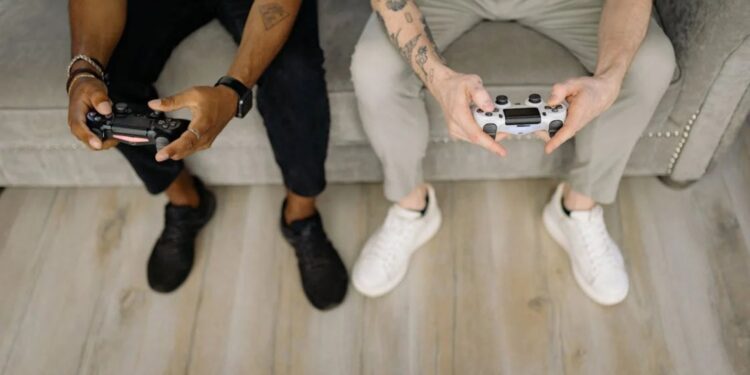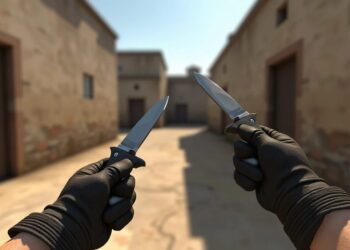Gamers do more than rack up points or chase high scores. Most of us recognize sharp instincts and fast reflexes, but there’s something deeper going on.
Games train brains to spot patterns, plan ahead, and pivot quickly when things change—skills anyone can use away from the console. From classrooms to office meetings or weekend sports leagues, you’ll find these strategies popping up helpfully in surprising places.
Stick around as we explore eight ways gamers turn play into a practical strategy for real-life mental undertakings.
1. How Competitive Gaming Teaches Real-World Risk Management
One wrong move at work, school, or everyday life can lead to years of regret, dissatisfaction, or suffering. But there’s always a way to bounce back from a mistake if you keep your cool and weigh the odds.
This is a phenomenon gamers encounter every day.
A split-second risk in-game teaches players to size up possible losses and rewards quickly. Gamers get comfortable making choices under uncertainty, sharpening instincts that transfer into real-life risk management.
2. Turning In-Game Planning into Everyday Problem Solving
Some of us struggle with last-minute changes or messy schedules. Gamers build plans by anticipating challenges several steps ahead, adjusting each move as the game shifts.
These habits go beyond consoles and keyboards.
Detailed planning in a virtual setting gives players the confidence to break big problems into smaller pieces and solve them without feeling overwhelmed in real-world scenarios.
3. Bringing Game-Like Scoring Systems into Sports and Friendly Competition
Watching a pro athlete adjust their tactics mid-game feels familiar to anyone who’s led a comeback in a heated multiplayer match.
Even professional soccer players do learn from the likes of eFootball and FIFA as tools for:
- Boosting tactical awareness,
- Relaxation and engagement,
- Mental practice when injured,
- Learning about opponents’ moves.

You see this crossover during parlor-style competitions when friends play wolf in golf, picking teams and strategizing with every shot—a clever way real-world games adopt smart scoring systems from video game logic.
4. Applying Resource Allocation Skills from Strategy Games to Daily Decisions
Running low on time, money, or energy happens to everyone. Gamers develop an eye for maximizing limited resources because one missed upgrade or wasted turn can shift the outcome of a match.
Planning how and when to spend in-game currency often carries over into shopping, budgeting for groceries, or managing busy schedules.
These habits train people to weigh priorities and stretch resources where it matters most.
5. Decision-Making Under Pressure: Lessons Beyond the Screen
Stress can turn small problems into big ones fast. And as a frequent gamer, you grow comfortable with tense moments that require fast, clear choices.
Multiplayer and live matches specifically demand sharp judgment when everything feels urgent and unpredictable.
This constant practice teaches you to keep calm, gather quick facts, and make smart moves even when stakes feel high outside the game room—whether in school presentations or workplace meetings with tight deadlines.
6. Adapting Quickly: The Power of Flexible Thinking from Multiplayer Matches
No plan survives first contact with chaos, whether you’re in a crowded office or a digital battlefield. Quick shifts in strategy often make the difference between losing and finding unexpected opportunities.
Some of today’s innovative gaming platforms, like ToGameSticky, provide an atmosphere that rewards this flexibility by allowing players to change tactics on the fly for a superior multiplayer experience online.
Over time, this builds habits that help people pivot smoothly when plans suddenly change outside of gaming, too.
7. Translating Teamwork Tactics to Group Projects and Workplaces
I’m a good team player. That’s something you’ll rarely miss on many resumes, but how do people really learn it? Cooperative games teach you that everyone brings strengths and real success means communicating clearly under pressure.

Companies invest in a teamwork culture in the workplace for exactly this reason—team-player thinking leads to better collaboration, quicker problem-solving, and shared wins. These habits start forming when gamers coordinate strategies during group matches with friends or strangers online.
8. Memory, Pattern Recognition, and the Gamer’s Edge Off-Screen
Names slip away, details get lost—unless you’re used to spotting what matters fast. Video games train memory through constant exposure to maps, puzzles, and patterns that shift each round.
This focus on recall spills over into everyday life.
People who play regularly remember faces in meetings more easily or spot recurring trends at work because their brains already know how to filter noise and keep key info close at hand.
Some skills feel hidden until life puts them to the test. Those hours with a controller or keyboard pay off, making everyday problem-solving quicker and decisions more confident, even in situations far from any screen.




















